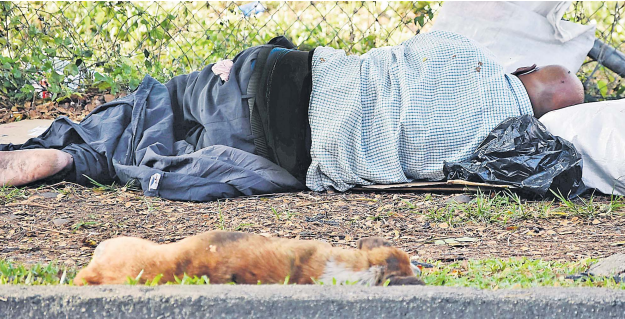AT just 35 years old, Jone (name changed for confidentiality) has lived through more than most do in a lifetime. A street dweller for seven years, a survivor of daily drug use, and now a frequent inpatient battling both HIV and tuberculosis, Jone’s life is a testament to the raw resilience of the human spirit—and the power of faith, therapy, and a second chance.
His journey into darkness didn’t happen overnight. Raised by his grandparents after a broken family upbringing, Jone lost both caregivers in the same year. It was 2012 when he first took to the streets of Suva, searching not for shelter, but for love — a need unmet in his early years, but one he desperately sought among friends and strangers alike.
That search led him to drugs. From childhood, substances like marijuana and, later, methamphetamine (ICE) became his refuge.
“It helped me calm down,” he shared during one of his recent counselling sessions.
“I was always angry … the drugs helped me forget.”
Admitted to the TB ward for six months as a dual TB/HIV patient, Jone came with more than a medical file — he brought a silent, emotional weight. One day, unprompted and still not officially referred for counselling, he opened up to the medical team about his suicidal thoughts. It had been three weeks of battling dark ideations alone. He hadn’t attempted to take his life, but the thoughts were real, persistent, and frightening.
That moment changed everything.
He was referred to a counsellor at Empower Pacific, and over the course of two sessions a week, began the hard, painful work of healing — not just his body, but his mind and soul.
The first counselling session was raw. Jone broke down. The years of pain, addiction, abandonment, and illness came crashing to the surface. Yet, even in his brokenness, the counsellor saw strength, a flicker of resilience.
Together, they set a goal to tackle his anger.
Anger had been the trigger for his drug use. Whenever frustration welled up, he turned to substances. But now, they introduced tools, assertive communication, counting down from 20 to control his reactions, adjusting his tone and choice of words, and the “walk away” technique: stepping back from conflict and returning when calm.
Jone also leaned on his faith. “God is the only reason I’m still here,” he said.
Gratitude to God became a daily anchor in his new life.
One week later, Jone returned for his second session. Something had changed. There were no major anger outbursts, no overwhelming frustration. Most notably, he hadn’t returned to the streets, a place full of triggers and temptation.
The streets had once provided him with access to drugs and a semblance of family. But now, a month into consistent counselling, he was learning to stay away.
“The only reason I took drugs was to manage my anger,” he admitted.
“Now, I’ve found better ways.”
His addiction had once consumed him. Daily usage, scrounging for money to buy ice or marijuana, his life revolved around the next high. But with each counselling session, that grip began to loosen.
Beyond the coping tools, the counsellor tapped into Jone’s passion, music.
He shared that he had written and performed an original song at a recent Vocal Battle event. It wasn’t just an outlet, it was therapy. His dream now is to join the national youth band and pursue musical training. Music, once drowned out by addiction and street life, had become his new voice.
Yet, despite the progress, his counsellor remains concerned.
Addiction is cunning, and relapses are common. Without a strong support system, his sister, who was once a financial lifeline, has since lost contact, Jone’s recovery hangs in delicate balance. His coping techniques are strong, but will he continue using them once he leaves the hospital?
The fear of relapse is real. But so is Jone’s newfound hope.
Jone’s journey is a sobering reminder of the deep, often invisible wounds carried by those we walk past every day. His life tells a story of trauma, yes, but also of tenacity, vulnerability, and the incredible impact of timely mental health support.
He hasn’t gone back to the streets. He hasn’t used drugs in over a month. He’s fighting with tools, faith, and music.
“I don’t want to be forgotten. I just want to live again.”
If you or someone you know is struggling with substance abuse or mental health challenges, reach out. Help is available, and recovery is possible.
Empower Pacific’s Toll-Free Counselling Helpline (5626) is open 24/7, providing vital mental health and psychosocial support to people across Fiji.
Every day, trained counsellors and social workers respond to calls from individuals facing emotional distress, mental health challenges, or simply in need of someone to talk to.

